- Home
- Sarah Woodbury
The Faithless Fool Page 6
The Faithless Fool Read online
Page 6
Godfrid had his hand up to catch the sachet before Gareth finished speaking. “Thanks.”
“You’re not with child too, are you?” Conall spoke in the same amused tone as before.
“If you were a true friend, you wouldn’t make light of my sensitive nose,” Godfrid said loftily. “Nor my wife’s. Watch me tell Cait you mocked her suffering.”
“If you did, she would only mock me back.” Conall laughed. “As she should. She also knows you would never tease her about it. I am as happy as both of you that you will soon be parents. We all feared it would never happen.” He tipped his head. “Though I have to say I am surprised by how much the smell is bothering me too.” And then Conall caught another sachet Gareth chose that moment to throw at him, holding it to his nose and breathing deeply.
“To me, the body smells more of dirt and general decay, like the musty floor of a forest, than of mortified flesh,” Gareth said.
“You have smelled too many dead bodies, my friend,” Conall replied. “You’ve become inured to it.”
“Wouldn’t that be nice.”
“Or not, given what it implies.” Godfrid gestured a hand to bring them back to the specifics of their situation. “Did you notice that his face is clear of dirt, unlike the rest of him?”
Gareth, who’d gone back to drawing, spoke absently, “It’s obvious the body was placed with care. It feels like a message.”
“If so, what exactly is the message?” Conall said. “Why put him in the priest’s chair instead of before the altar—or on it, as we saw in Dublin? Doesn’t it defeat the purpose of the message if we don’t understand it?”
“It would, but only if the message was meant for us,” Gareth said.
“Are you thinking it was for Margaret?” Conall said. “She definitely responded with fear and hysterics.”
“Or the priest, or the king, or Prince Henry,” Gareth said. “Though I was watching the faces of the latter two when they saw the body, and neither responded in a way I found unusual.”
“From what you describe, nor did Margaret, truth be told,” Conall said.
Gareth grunted. “It was highly unlikely that either the prince or king would have been the one to find the body, but whoever put the dead man here would know that they would have to view it. King David is too involved in the administration of Carlisle Castle to leave the observation of something this momentous to others.”
“My money is on the priest,” Godfrid said.
“That was quick,” Conall said. “What do you have against Carlisle’s priest?”
“Nothing. I’m just saying that there are few people who would know this church as well as the man who runs it. As I’m sure you recall from the last time, the message was for the Church and left by a monk.”
“Your mind works in strange ways if leaving a body in a church indicates to you that the priest did it,” Conall said dryly.
“He left it in his own chair.” Godfrid had made the suggestion initially to spark a reaction, but now he was warming to the idea. “While, at first thought, to do so implies irreverence, it’s his chair. He might have felt it was the only place he could leave it.”
“Meaning he wants to be caught? Then why not just confess?”
“You two are impossible,” Gareth said from behind them. “Need I remind you that we have a long way to go before we have gathered enough information to draw any conclusions?”
Godfrid and Conall hung their heads, feigning contrition for Gareth’s benefit (and amusement). Though, the more Godfrid considered the matter, the more he thought his idea, initially said in jest, might be a good one. It wasn’t as if any of them needed to be reminded of what had transpired last year, which now that Godfrid thought about it, may have adversely affected his attitude towards death, investigations, and churches in general. The way the body in Dublin had been displayed had definitely been meant as a message, and its discovery had led them down some winding paths. Determining the culprit had taken some doing, and ultimately involved the identification of traitors, the putting down of an insurrection, and the ascension of Godfrid’s own brother to the throne of Dublin.
”Look at this!” Conall plucked something from amidst the soiled clothing and then held out his hand for the others to see. A dried flower petal that once might have been purple lay in his palm.
Gareth leaned in. “Crocus?”
Godfrid came closer too, having grabbed a candle from a side table so he could see better. “That would be right for February, if that really was when Aelred was last seen, and if this is really Aelred.”
Conall made a fist to prevent the petal from escaping. “What do I do with it? Is it worth keeping?”
“At this point, everything is worth keeping.” Putting aside his sketching, Gareth hastened into the vestry and returned with a shallow wooden bowl. Conall gently placed the petal into it.
Godfrid then began to move around the body in a widening circle, his eyes searching for any sign of the man who’d desecrated the church. “Aelred didn’t put himself in this chair, but I see nothing of use, not even a clump of dirt that might tell us the identity of the one who did.”
“The floor was swept clean after the body was left.” Gareth was now standing in front of the dead man, his arms folded across his chest and his finger to his lips.
Godfrid himself had no thought to get closer again but said, “Implying yet again that this entire scene is a mummer’s play for someone’s benefit.”
“It is a mummer’s play,” Gareth said, “down to the dramatic death at the end. A man died, his body was buried, and today dug up and deposited here. But until we know for what reason, we’ll be hard-pressed to discover who did it.”
“Unless someone saw him doing it.” Conall had also given up on the body and began to move deeper into the church.
Godfrid followed. “Wouldn’t that be nice.”
“Though if someone witnessed the digging up of a body and the transport of it into the church, one might wonder why he hasn’t come forward already.” Conall reached the entrance to the vestry a step ahead of Godfrid, who said, “If you’re going outside, I’ll come with you.”
Behind them, Gareth made a noise of dismissal. “I’ll be along as soon as the king’s men remove the body.”
“We’ll make sure to step on everything important.” Godfrid looked back to make sure Gareth saw his departing smirk.
Conall grinned too. “We can count ourselves fortunate that the body wasn’t left in the cathedral. We’d have more men sticking their noses where they don’t belong there than we will here.”
Godfrid grumbled. “At a minimum, it would have sent a different message.”
“I didn’t mean for that reason.” Conall shoved his shoulder. “The cathedral is the seat of the bishop. I’m thinking Bishop Æthelwold would have been more put out by the appearance of a dead and decaying body left in his chair than King David appears to be.”
“Of course, it wasn’t left in his chair.” Godfrid’s bantering reply was almost obligatory, for all that it meant he and Conall were thinking along similar lines. “Imagine if poor Aelred was left on the king’s throne.”
“Now that would have been a disturbing message.”
“And this isn’t?”
Conall laughed.
Godfrid shook his head. “It’s you, my friend, who is far too cheerful!”
Although St. Mary’s wasn’t a cathedral, the church was large enough to have two entrances. When they’d arrived initially, they’d come through the front door that brought parishioners first into the porch, then the narthex, which was an entryway just inside the door, partitioned off from the rest of the building, and then the nave. Now they were making their way through the vestry where there was a side door that allowed the clergy to enter and exit unseen by their parishioners. The vestry was also where vestments, candles, and accoutrements for worship were kept. What child in Christendom hadn’t taken refuge at one time or another amongst the priestly robes and put off for an hour his punishment for an ill deed?
From the glance Conall shot at the collection of assorted robes on hooks on the wall, he was among such miscreants too. And then he said, as if reading Godfrid’s mind, “I wasn’t always a good student.”
“I’m shocked, Conall, shocked I tell you.” Godfrid smiled again at his friend and pushed open the door that would take them outside. “I’m sure you’ll be surprised to know that I wasn’t either.”
Once through the doorway, however, Godfrid immediately pulled up short, causing Conall to run into his back.
“At last, something to see.” In an attempt not to put his feet where they shouldn’t go, Godfrid jumped off the side of the steps to the ground without touching the stairway. “I knew we would eventually find dirt somewhere.”
They both gazed with satisfaction at the clumps of dirt and grass on the steps leading down from the vestry.
“And boot prints.” Conall indicated the footprints visible in the moist earth leading away from the stairs. “Well done not touching those either.”
Godfrid accepted the accolade with a nod. “Using this doorway makes the culprit all the more likely to be the priest.” And then he grinned at Conall’s exaggerated sigh of exasperation. “I don’t mean to be difficult. I just want us to consider all the options.”
“So far, that the priest did it is your only option.” Then Conall gave a low grunt that might have indicated a tiny bit of agreement. “It is a little surprising that we haven’t seen him yet. Most parish priests of my acquaintance would have been shadowing our heels by now if something like this happened in their church.”
“Maybe he made himself scarce until we found the body.”
“I do admit a priest is more likely than some to have cleaned up after himself ins
ide the church.” Conall bent low to the ground. “And I do think we are right about the body coming in this way. Even with jumping down from the top step, and how big you are, your boot prints are barely as deep as these. So unless the priest is very fat, I’m more inclined to think these could belong to a normal man carrying a dead body.”
“I knew you’d eventually agree with me!”
Conall’s subsequent eyeroll pleased Godfrid enormously. “This many months into decay, I wouldn’t make a bet on how heavy the body actually is. Gareth can determine that when they move it to the laying-out room.”
Godfrid shook his head in mock dismay. “Even if it wasn’t the priest, and I’m only suggesting it to avoid a fight, he didn’t clean up after himself here. Why not?”
Conall frowned. “It was dark, and he didn’t notice? He ran out of time?”
“He cared enough to clean the man’s face.” Godfrid bit his lip, turning serious for a moment. “He cared enough to clean the church.”
“But he didn’t care about propriety enough to leave him where he was buried.” Conall was focused now too.
“Could he have thought digging him up and leaving him in the church was honoring him?” Godfrid said.
“How could that be?”
“Because ... he knew he’d been murdered.”
Conall broke the intensity with a laugh. “What are you saying? After all this time he could no longer stand the guilt?”
“Or ... the man who left the body in the church, St. Mary’s priest, let’s say, isn’t the killer.”
Chapter Nine
Day One
Conall
“If the one who killed and buried the dead man and the one who left the body in the church are two different people,” Conall said, “we’ve just hugely complicated the investigation. Gareth won’t be thanking us for that.”
“But still, you can see how it could have happened, even without my mad idea about the priest.”
Conall gave him a rueful smile. “The priest idea is actually growing on me.”
“Really? I was jesting for most of it.”
“I think what you were getting at just now, whether you knew it or not, is that the killer could have confessed his sin to the priest, who of course is forbidden to act on what he knows, given the sanctity of the confessional. The priest, then, might have felt he had no choice but to unearth the body, since it would be the only way to tell the world what he knows.”
Godfrid let out a thoughtful humph. “And, as I said earlier, that could explain why he chose to leave it in his own chair.”
“If it weren’t for your imagination, he could have remained anonymous, sure the act would never get back to him.” Conall then made a slashing motion in Godfrid’s direction. “Listen to us! If Gareth were here, he would reiterate that it’s too early to make assumptions about who might have done what when or their motives for doing it.”
“Agreed.” Godfrid grinned, not taking offense. “Thus, we need to focus on what we can determine, such as when the clods of dirt were left here.”
“How can we possibly know that?”
Godfrid sniffed the air. “If I’m remembering correctly, it wasn’t raining when we arrived at Carlisle’s dock.” They’d come up the River Eden and docked at the wharf to the north of the city, just past the confluence of the Caldew and the Eden. “But it had begun to rain hard by the time we reached the priory.”
“And had stopped again for our walk to the castle and hasn’t rained again since.” Conall pursed his lips. “Scotland is hardly different from Ireland or Wales. Likely it rained on and off all day, so was it raining when the person moved the body?”
“I think we can conclude it was not. These clods of dirt aren’t soaking wet. Nor is the dead man.”
Before they could speculate further, Gareth appeared in the vestry doorway. He held a lantern in each hand, one of which he passed to Conall, whose candle had almost burned out.
“Men are moving the body to the laying-out room, and I’ve finished the rest of the preliminary work.” Gareth made a motion with his head. “What have you found?”
“Dirt,” Godfrid pointed, “and tracks leading that way.”
“Into the graveyard.” Holding his lantern high, Conall directed their attention to the footprints that disappeared into the darkness at the rear of the church.
Grass grew right up to the foundations, but it was patchy. Thus, with the recent rains, the footprints were distinct. Some sixty yards distant, the palisade doubled as the churchyard wall, and was much higher, obviously, than the rest, which a grown man could easily see over. The churchyard wall was designed to keep out animals, not people. The entire space between the church and the wall was scattered with graves.
“Dead bodies do generally come from graves.” Gareth’s tone was dry, but he was also serious. And correct.
Although Conall was no tracker, having spent (as he’d implied to Godfrid earlier) far more time with books as a youth than outdoors, he had no trouble following the prints. Gareth strolled along next to him, implying he had all the time in the world.
“You seem less concerned about this mystery than some,” Conall said.
“I suppose you’re not wrong. The body isn’t recent. Until a fresh body turns up, I’m hoping to maintain my equilibrium. And really, investigating death—and maybe murder—is easier when I don’t know anyone involved.”
“King David didn’t seem overly concerned either,” Godfrid said from behind them. “I wonder why?”
Gareth glanced over his shoulder. “King David is in a place in life where he is very clear about what he needs to worry about and what he doesn’t.”
“The war with England, you mean,” Godfrid said, not really as a question, just asking for confirmation that he’d understood Gareth correctly.
“That is important, of course. But from what he said to us in the hall, he knows he has a limited amount of time left on this earth and a great deal to do before he dies. Prince Henry is only sixteen and not quite ready to lead. David takes his responsibilities towards the boy seriously. That’s why he knighted him.”
King David’s own son (confusingly, also named Henry) had no claim to the English crown. Putting his great-nephew on the throne would go a long way to securing his own son’s rule of Scotland and Northumbria after David died.
Unfortunately, David’s son suffered from an unnamed illness that had threatened his life more than once. It was another reason, knowing the real possibility that his son might not survive him, and his heir would be his grandson Malcolm, that David was looking for all the allies he could get.
“And because Prince Henry’s father wouldn’t.” As he spoke, Conall acknowledged a touch of bitterness. He’d had a difficult relationship with his own father, who hadn’t knighted Conall either, leaving the job to a great-uncle, just as Prince Henry’s father had.
“I don’t get the sense his father thinks very much of our young prince,” Gareth said.
Conall tsked. “Geoffrey of Anjou thinks little of anyone but himself, even his heir.”
“Though really,” Godfrid put in, “he may see Henry as his wife’s heir before his own. In Geoffrey’s eyes, being the Count of Anjou is equivalent to being the King of England—but only in Geoffrey’s eyes.”
“Which is why Henry is here, with David, rather than being supported in his claim to the English throne by his own father.” Gareth shook his head. “Geoffrey is probably right that achieving the throne by his own hand and merits means Henry will deserve it, but it’s hard to understand why he won’t lend some support.”
“Maybe he has,” Godfrid said. “Maybe there’s much we don’t know.”
“That is undoubtedly true,” Gareth said, “and not just about Prince Henry!”
Conall stopped for a moment at a grave marked by an upright stone. The writing was so weathered it was unreadable beyond a few letters. “This graveyard is old.”
“For hundreds of years, my people ruled from this palace—the one that existed before the current keep. This church has been a sacred place since before Rome fell.” Gareth slowed as the tracks weaved among several similarly old stones and then curved behind an ancient oak. “It reminds me very much of King Owain’s palace at Caernarfon and St. Peblig’s Church next to it. I don’t know if St. Peblig’s was built over a Roman temple the way the palace at Caernarfon was built over the ruins of a Roman fort, but the graveyard is older than the church. It’s still possible to read the Latin inscriptions on some of the oldest stones. One grave is that of a centurion.”
“You’re not with child too, are you?” Conall spoke in the same amused tone as before.
“If you were a true friend, you wouldn’t make light of my sensitive nose,” Godfrid said loftily. “Nor my wife’s. Watch me tell Cait you mocked her suffering.”
“If you did, she would only mock me back.” Conall laughed. “As she should. She also knows you would never tease her about it. I am as happy as both of you that you will soon be parents. We all feared it would never happen.” He tipped his head. “Though I have to say I am surprised by how much the smell is bothering me too.” And then Conall caught another sachet Gareth chose that moment to throw at him, holding it to his nose and breathing deeply.
“To me, the body smells more of dirt and general decay, like the musty floor of a forest, than of mortified flesh,” Gareth said.
“You have smelled too many dead bodies, my friend,” Conall replied. “You’ve become inured to it.”
“Wouldn’t that be nice.”
“Or not, given what it implies.” Godfrid gestured a hand to bring them back to the specifics of their situation. “Did you notice that his face is clear of dirt, unlike the rest of him?”
Gareth, who’d gone back to drawing, spoke absently, “It’s obvious the body was placed with care. It feels like a message.”
“If so, what exactly is the message?” Conall said. “Why put him in the priest’s chair instead of before the altar—or on it, as we saw in Dublin? Doesn’t it defeat the purpose of the message if we don’t understand it?”
“It would, but only if the message was meant for us,” Gareth said.
“Are you thinking it was for Margaret?” Conall said. “She definitely responded with fear and hysterics.”
“Or the priest, or the king, or Prince Henry,” Gareth said. “Though I was watching the faces of the latter two when they saw the body, and neither responded in a way I found unusual.”
“From what you describe, nor did Margaret, truth be told,” Conall said.
Gareth grunted. “It was highly unlikely that either the prince or king would have been the one to find the body, but whoever put the dead man here would know that they would have to view it. King David is too involved in the administration of Carlisle Castle to leave the observation of something this momentous to others.”
“My money is on the priest,” Godfrid said.
“That was quick,” Conall said. “What do you have against Carlisle’s priest?”
“Nothing. I’m just saying that there are few people who would know this church as well as the man who runs it. As I’m sure you recall from the last time, the message was for the Church and left by a monk.”
“Your mind works in strange ways if leaving a body in a church indicates to you that the priest did it,” Conall said dryly.
“He left it in his own chair.” Godfrid had made the suggestion initially to spark a reaction, but now he was warming to the idea. “While, at first thought, to do so implies irreverence, it’s his chair. He might have felt it was the only place he could leave it.”
“Meaning he wants to be caught? Then why not just confess?”
“You two are impossible,” Gareth said from behind them. “Need I remind you that we have a long way to go before we have gathered enough information to draw any conclusions?”
Godfrid and Conall hung their heads, feigning contrition for Gareth’s benefit (and amusement). Though, the more Godfrid considered the matter, the more he thought his idea, initially said in jest, might be a good one. It wasn’t as if any of them needed to be reminded of what had transpired last year, which now that Godfrid thought about it, may have adversely affected his attitude towards death, investigations, and churches in general. The way the body in Dublin had been displayed had definitely been meant as a message, and its discovery had led them down some winding paths. Determining the culprit had taken some doing, and ultimately involved the identification of traitors, the putting down of an insurrection, and the ascension of Godfrid’s own brother to the throne of Dublin.
”Look at this!” Conall plucked something from amidst the soiled clothing and then held out his hand for the others to see. A dried flower petal that once might have been purple lay in his palm.
Gareth leaned in. “Crocus?”
Godfrid came closer too, having grabbed a candle from a side table so he could see better. “That would be right for February, if that really was when Aelred was last seen, and if this is really Aelred.”
Conall made a fist to prevent the petal from escaping. “What do I do with it? Is it worth keeping?”
“At this point, everything is worth keeping.” Putting aside his sketching, Gareth hastened into the vestry and returned with a shallow wooden bowl. Conall gently placed the petal into it.
Godfrid then began to move around the body in a widening circle, his eyes searching for any sign of the man who’d desecrated the church. “Aelred didn’t put himself in this chair, but I see nothing of use, not even a clump of dirt that might tell us the identity of the one who did.”
“The floor was swept clean after the body was left.” Gareth was now standing in front of the dead man, his arms folded across his chest and his finger to his lips.
Godfrid himself had no thought to get closer again but said, “Implying yet again that this entire scene is a mummer’s play for someone’s benefit.”
“It is a mummer’s play,” Gareth said, “down to the dramatic death at the end. A man died, his body was buried, and today dug up and deposited here. But until we know for what reason, we’ll be hard-pressed to discover who did it.”
“Unless someone saw him doing it.” Conall had also given up on the body and began to move deeper into the church.
Godfrid followed. “Wouldn’t that be nice.”
“Though if someone witnessed the digging up of a body and the transport of it into the church, one might wonder why he hasn’t come forward already.” Conall reached the entrance to the vestry a step ahead of Godfrid, who said, “If you’re going outside, I’ll come with you.”
Behind them, Gareth made a noise of dismissal. “I’ll be along as soon as the king’s men remove the body.”
“We’ll make sure to step on everything important.” Godfrid looked back to make sure Gareth saw his departing smirk.
Conall grinned too. “We can count ourselves fortunate that the body wasn’t left in the cathedral. We’d have more men sticking their noses where they don’t belong there than we will here.”
Godfrid grumbled. “At a minimum, it would have sent a different message.”
“I didn’t mean for that reason.” Conall shoved his shoulder. “The cathedral is the seat of the bishop. I’m thinking Bishop Æthelwold would have been more put out by the appearance of a dead and decaying body left in his chair than King David appears to be.”
“Of course, it wasn’t left in his chair.” Godfrid’s bantering reply was almost obligatory, for all that it meant he and Conall were thinking along similar lines. “Imagine if poor Aelred was left on the king’s throne.”
“Now that would have been a disturbing message.”
“And this isn’t?”
Conall laughed.
Godfrid shook his head. “It’s you, my friend, who is far too cheerful!”
Although St. Mary’s wasn’t a cathedral, the church was large enough to have two entrances. When they’d arrived initially, they’d come through the front door that brought parishioners first into the porch, then the narthex, which was an entryway just inside the door, partitioned off from the rest of the building, and then the nave. Now they were making their way through the vestry where there was a side door that allowed the clergy to enter and exit unseen by their parishioners. The vestry was also where vestments, candles, and accoutrements for worship were kept. What child in Christendom hadn’t taken refuge at one time or another amongst the priestly robes and put off for an hour his punishment for an ill deed?
From the glance Conall shot at the collection of assorted robes on hooks on the wall, he was among such miscreants too. And then he said, as if reading Godfrid’s mind, “I wasn’t always a good student.”
“I’m shocked, Conall, shocked I tell you.” Godfrid smiled again at his friend and pushed open the door that would take them outside. “I’m sure you’ll be surprised to know that I wasn’t either.”
Once through the doorway, however, Godfrid immediately pulled up short, causing Conall to run into his back.
“At last, something to see.” In an attempt not to put his feet where they shouldn’t go, Godfrid jumped off the side of the steps to the ground without touching the stairway. “I knew we would eventually find dirt somewhere.”
They both gazed with satisfaction at the clumps of dirt and grass on the steps leading down from the vestry.
“And boot prints.” Conall indicated the footprints visible in the moist earth leading away from the stairs. “Well done not touching those either.”
Godfrid accepted the accolade with a nod. “Using this doorway makes the culprit all the more likely to be the priest.” And then he grinned at Conall’s exaggerated sigh of exasperation. “I don’t mean to be difficult. I just want us to consider all the options.”
“So far, that the priest did it is your only option.” Then Conall gave a low grunt that might have indicated a tiny bit of agreement. “It is a little surprising that we haven’t seen him yet. Most parish priests of my acquaintance would have been shadowing our heels by now if something like this happened in their church.”
“Maybe he made himself scarce until we found the body.”
“I do admit a priest is more likely than some to have cleaned up after himself ins
ide the church.” Conall bent low to the ground. “And I do think we are right about the body coming in this way. Even with jumping down from the top step, and how big you are, your boot prints are barely as deep as these. So unless the priest is very fat, I’m more inclined to think these could belong to a normal man carrying a dead body.”
“I knew you’d eventually agree with me!”
Conall’s subsequent eyeroll pleased Godfrid enormously. “This many months into decay, I wouldn’t make a bet on how heavy the body actually is. Gareth can determine that when they move it to the laying-out room.”
Godfrid shook his head in mock dismay. “Even if it wasn’t the priest, and I’m only suggesting it to avoid a fight, he didn’t clean up after himself here. Why not?”
Conall frowned. “It was dark, and he didn’t notice? He ran out of time?”
“He cared enough to clean the man’s face.” Godfrid bit his lip, turning serious for a moment. “He cared enough to clean the church.”
“But he didn’t care about propriety enough to leave him where he was buried.” Conall was focused now too.
“Could he have thought digging him up and leaving him in the church was honoring him?” Godfrid said.
“How could that be?”
“Because ... he knew he’d been murdered.”
Conall broke the intensity with a laugh. “What are you saying? After all this time he could no longer stand the guilt?”
“Or ... the man who left the body in the church, St. Mary’s priest, let’s say, isn’t the killer.”
Chapter Nine
Day One
Conall
“If the one who killed and buried the dead man and the one who left the body in the church are two different people,” Conall said, “we’ve just hugely complicated the investigation. Gareth won’t be thanking us for that.”
“But still, you can see how it could have happened, even without my mad idea about the priest.”
Conall gave him a rueful smile. “The priest idea is actually growing on me.”
“Really? I was jesting for most of it.”
“I think what you were getting at just now, whether you knew it or not, is that the killer could have confessed his sin to the priest, who of course is forbidden to act on what he knows, given the sanctity of the confessional. The priest, then, might have felt he had no choice but to unearth the body, since it would be the only way to tell the world what he knows.”
Godfrid let out a thoughtful humph. “And, as I said earlier, that could explain why he chose to leave it in his own chair.”
“If it weren’t for your imagination, he could have remained anonymous, sure the act would never get back to him.” Conall then made a slashing motion in Godfrid’s direction. “Listen to us! If Gareth were here, he would reiterate that it’s too early to make assumptions about who might have done what when or their motives for doing it.”
“Agreed.” Godfrid grinned, not taking offense. “Thus, we need to focus on what we can determine, such as when the clods of dirt were left here.”
“How can we possibly know that?”
Godfrid sniffed the air. “If I’m remembering correctly, it wasn’t raining when we arrived at Carlisle’s dock.” They’d come up the River Eden and docked at the wharf to the north of the city, just past the confluence of the Caldew and the Eden. “But it had begun to rain hard by the time we reached the priory.”
“And had stopped again for our walk to the castle and hasn’t rained again since.” Conall pursed his lips. “Scotland is hardly different from Ireland or Wales. Likely it rained on and off all day, so was it raining when the person moved the body?”
“I think we can conclude it was not. These clods of dirt aren’t soaking wet. Nor is the dead man.”
Before they could speculate further, Gareth appeared in the vestry doorway. He held a lantern in each hand, one of which he passed to Conall, whose candle had almost burned out.
“Men are moving the body to the laying-out room, and I’ve finished the rest of the preliminary work.” Gareth made a motion with his head. “What have you found?”
“Dirt,” Godfrid pointed, “and tracks leading that way.”
“Into the graveyard.” Holding his lantern high, Conall directed their attention to the footprints that disappeared into the darkness at the rear of the church.
Grass grew right up to the foundations, but it was patchy. Thus, with the recent rains, the footprints were distinct. Some sixty yards distant, the palisade doubled as the churchyard wall, and was much higher, obviously, than the rest, which a grown man could easily see over. The churchyard wall was designed to keep out animals, not people. The entire space between the church and the wall was scattered with graves.
“Dead bodies do generally come from graves.” Gareth’s tone was dry, but he was also serious. And correct.
Although Conall was no tracker, having spent (as he’d implied to Godfrid earlier) far more time with books as a youth than outdoors, he had no trouble following the prints. Gareth strolled along next to him, implying he had all the time in the world.
“You seem less concerned about this mystery than some,” Conall said.
“I suppose you’re not wrong. The body isn’t recent. Until a fresh body turns up, I’m hoping to maintain my equilibrium. And really, investigating death—and maybe murder—is easier when I don’t know anyone involved.”
“King David didn’t seem overly concerned either,” Godfrid said from behind them. “I wonder why?”
Gareth glanced over his shoulder. “King David is in a place in life where he is very clear about what he needs to worry about and what he doesn’t.”
“The war with England, you mean,” Godfrid said, not really as a question, just asking for confirmation that he’d understood Gareth correctly.
“That is important, of course. But from what he said to us in the hall, he knows he has a limited amount of time left on this earth and a great deal to do before he dies. Prince Henry is only sixteen and not quite ready to lead. David takes his responsibilities towards the boy seriously. That’s why he knighted him.”
King David’s own son (confusingly, also named Henry) had no claim to the English crown. Putting his great-nephew on the throne would go a long way to securing his own son’s rule of Scotland and Northumbria after David died.
Unfortunately, David’s son suffered from an unnamed illness that had threatened his life more than once. It was another reason, knowing the real possibility that his son might not survive him, and his heir would be his grandson Malcolm, that David was looking for all the allies he could get.
“And because Prince Henry’s father wouldn’t.” As he spoke, Conall acknowledged a touch of bitterness. He’d had a difficult relationship with his own father, who hadn’t knighted Conall either, leaving the job to a great-uncle, just as Prince Henry’s father had.
“I don’t get the sense his father thinks very much of our young prince,” Gareth said.
Conall tsked. “Geoffrey of Anjou thinks little of anyone but himself, even his heir.”
“Though really,” Godfrid put in, “he may see Henry as his wife’s heir before his own. In Geoffrey’s eyes, being the Count of Anjou is equivalent to being the King of England—but only in Geoffrey’s eyes.”
“Which is why Henry is here, with David, rather than being supported in his claim to the English throne by his own father.” Gareth shook his head. “Geoffrey is probably right that achieving the throne by his own hand and merits means Henry will deserve it, but it’s hard to understand why he won’t lend some support.”
“Maybe he has,” Godfrid said. “Maybe there’s much we don’t know.”
“That is undoubtedly true,” Gareth said, “and not just about Prince Henry!”
Conall stopped for a moment at a grave marked by an upright stone. The writing was so weathered it was unreadable beyond a few letters. “This graveyard is old.”
“For hundreds of years, my people ruled from this palace—the one that existed before the current keep. This church has been a sacred place since before Rome fell.” Gareth slowed as the tracks weaved among several similarly old stones and then curved behind an ancient oak. “It reminds me very much of King Owain’s palace at Caernarfon and St. Peblig’s Church next to it. I don’t know if St. Peblig’s was built over a Roman temple the way the palace at Caernarfon was built over the ruins of a Roman fort, but the graveyard is older than the church. It’s still possible to read the Latin inscriptions on some of the oldest stones. One grave is that of a centurion.”

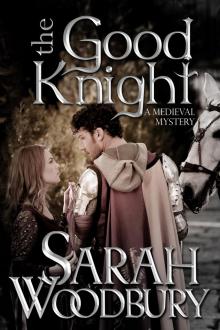 The Good Knight
The Good Knight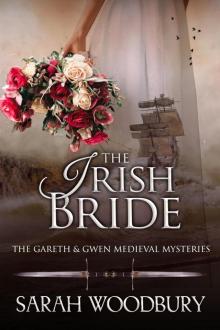 The Irish Bride
The Irish Bride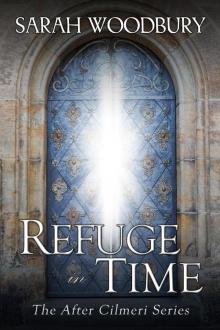 Refuge in Time
Refuge in Time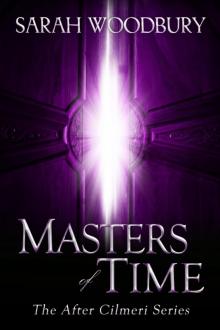 Masters of Time
Masters of Time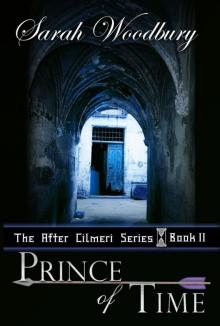 Prince of Time (Book Two in the After Cilmeri series)
Prince of Time (Book Two in the After Cilmeri series)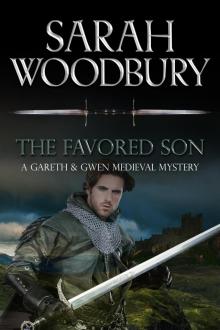 The Favored Son
The Favored Son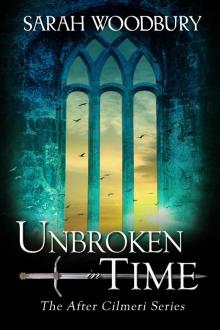 Unbroken in Time
Unbroken in Time![[The Lion of Wales 01.0] Cold My Heart Read online](http://i1.bookreadfree.com/i/03/22/the_lion_of_wales_01_0_cold_my_heart_preview.jpg) [The Lion of Wales 01.0] Cold My Heart
[The Lion of Wales 01.0] Cold My Heart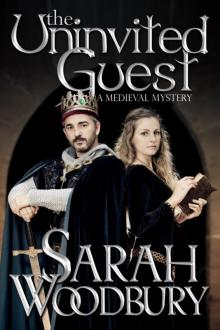 The Uninvited Guest
The Uninvited Guest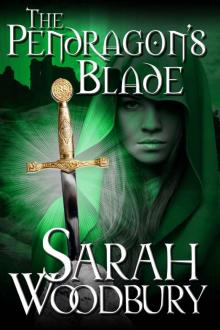 The Pendragon's Blade (The Last Pendragon Saga Book 2)
The Pendragon's Blade (The Last Pendragon Saga Book 2)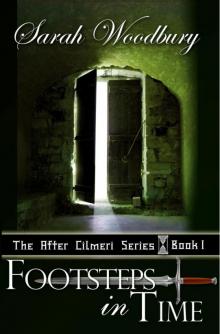 Footsteps in Time
Footsteps in Time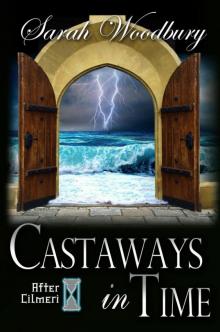 Castaways in Time (The After Cilmeri Series)
Castaways in Time (The After Cilmeri Series) Winds of Time
Winds of Time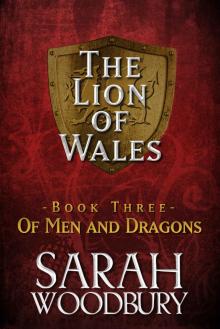 Of Men and Dragons (The Lion of Wales Book 3)
Of Men and Dragons (The Lion of Wales Book 3)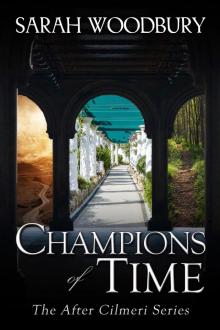 Champions of Time
Champions of Time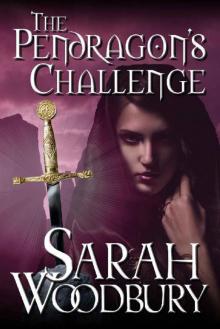 The Pendragon's Challenge (The Last Pendragon Saga Book 7)
The Pendragon's Challenge (The Last Pendragon Saga Book 7)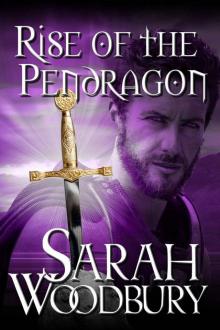 Rise of the Pendragon (The Last Pendragon Saga Book 6)
Rise of the Pendragon (The Last Pendragon Saga Book 6)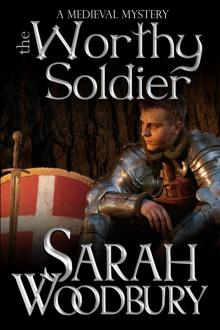 The Worthy Soldier
The Worthy Soldier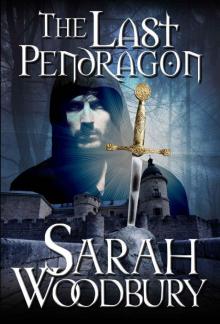 The Last Pendragon (The Last Pendragon Saga Book 1)
The Last Pendragon (The Last Pendragon Saga Book 1)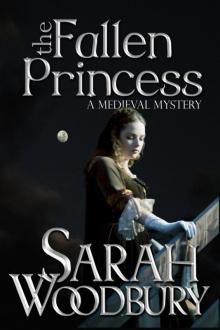 The Fallen Princess
The Fallen Princess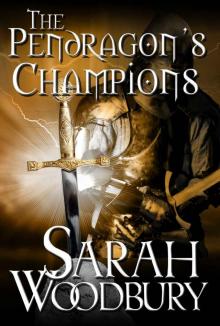 The Pendragon's Champions (The Last Pendragon Saga Book 5)
The Pendragon's Champions (The Last Pendragon Saga Book 5)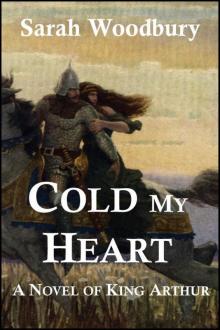 Cold My Heart: A Novel of King Arthur
Cold My Heart: A Novel of King Arthur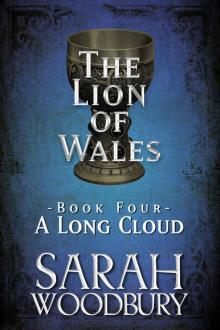 A Long Cloud (The Lion of Wales Book 4)
A Long Cloud (The Lion of Wales Book 4)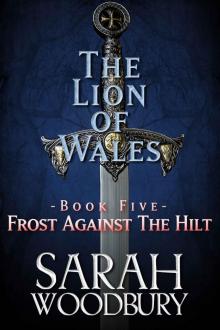 Frost Against the Hilt (The Lion of Wales Book 5)
Frost Against the Hilt (The Lion of Wales Book 5) Daughter of Time: A Time Travel Romance
Daughter of Time: A Time Travel Romance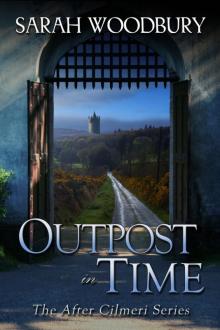 Outpost in Time
Outpost in Time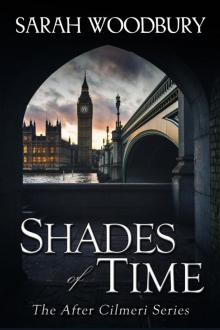 Shades of Time kobo
Shades of Time kobo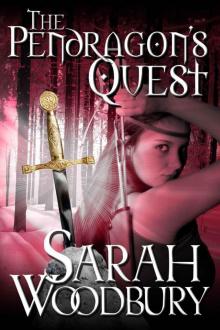 The Pendragon's Quest (The Last Pendragon Saga Book 4)
The Pendragon's Quest (The Last Pendragon Saga Book 4)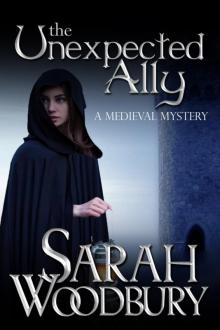 The Unexpected Ally
The Unexpected Ally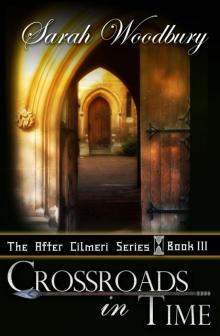 Crossroads in Time (The After Cilmeri Series)
Crossroads in Time (The After Cilmeri Series)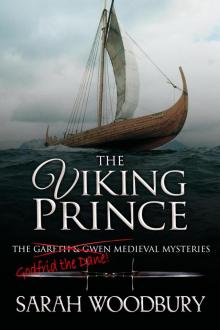 The Viking Prince
The Viking Prince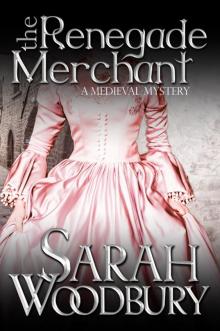 The Renegade Merchant
The Renegade Merchant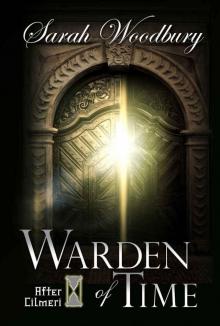 Warden of Time (The After Cilmeri Series Book 8)
Warden of Time (The After Cilmeri Series Book 8)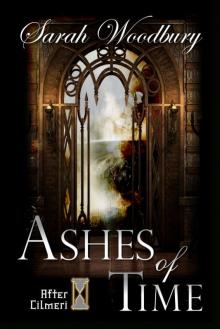 Ashes of Time (The After Cilmeri Series)
Ashes of Time (The After Cilmeri Series)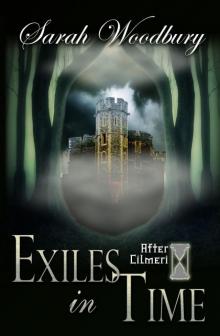 Exiles in Time (The After Cilmeri Series)
Exiles in Time (The After Cilmeri Series)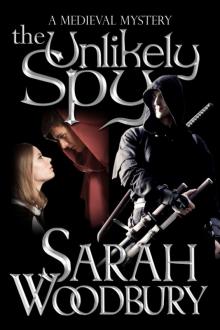 The Unlikely Spy
The Unlikely Spy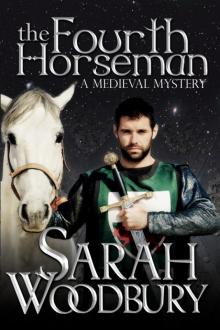 The Fourth Horseman
The Fourth Horseman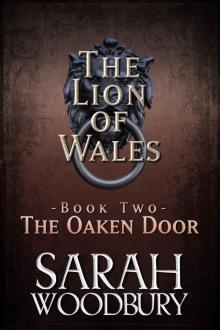 The Oaken Door (The Lion of Wales Book 2)
The Oaken Door (The Lion of Wales Book 2)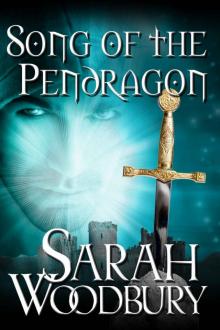 Song of the Pendragon (The Last Pendragon Saga Book 3)
Song of the Pendragon (The Last Pendragon Saga Book 3)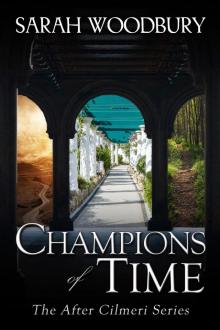 Champions of Time (The After Cilmeri Series, #13)
Champions of Time (The After Cilmeri Series, #13)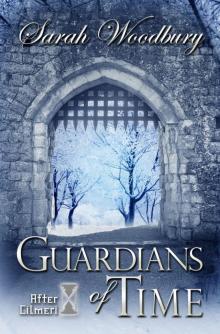 Guardians of Time
Guardians of Time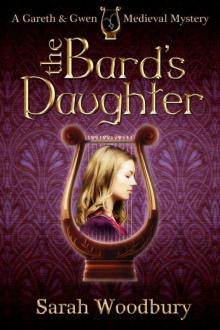 The Bard's Daughter (A Gareth and Gwen Medieval Mystery)
The Bard's Daughter (A Gareth and Gwen Medieval Mystery)